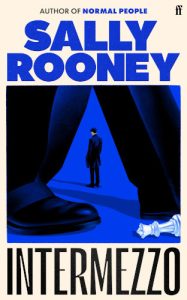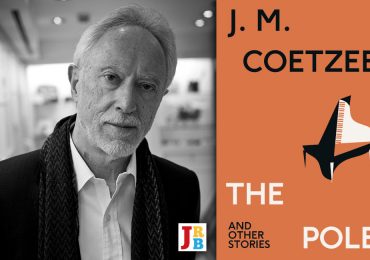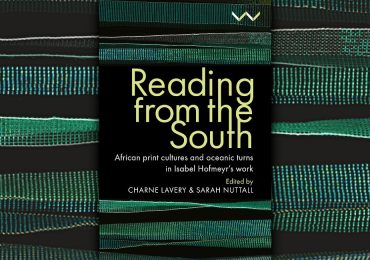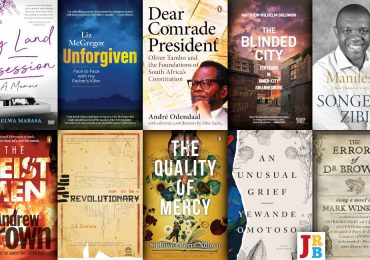In Intermezzo, sexual tension and spiky wit give way to a deeper sense of tenderness and a lighter brand of charm, writes JRB Editor Jennifer Malec.

Intermezzo
Sally Rooney
Faber, 2024
In her latest novel, Intermezzo, the charged inner monologue Sally Rooney has become known for reaches fever pitch. Feelings and ideas swirl in the minds of her characters, while the taught sinews of long relationships fetter genuine communication. Her exploration of relationships—romantic and, for the first time in her work, familial—retains the intensity of her earlier work, but reaches a new level of profundity, as sexual tension and spiky wit give way to a deeper sense of tenderness and a lighter brand of charm.
Set in Dublin in autumn, Intermezzo alternates between the perspectives of two brothers, Peter, thirty-two, popular, a philosophy graduate and successful barrister, and Ivan, ten years younger, strange, a former chess prodigy and freelance data analyst. The two have a fractious relationship, marred by the hostility and disconnection that can develop between siblings in their teenage years, but have been brought back into each other’s orbit by the recent death of their father. Ivan sees Peter as glib and obnoxiously confident, and resents that he was able to escape, through college, the strained atmosphere of their mother’s home after she remarried, and the torturous company of their preppy step-siblings. Peter, on the other hand, regards his brother as self-centred, closed off, and ungrateful of the parental role he played alongside their taciturn father.
For much of Intermezzo, the action is almost entirely internal. Uncomfortable conversations are coolly carried out while minds fizz and seethe, but real world gestures are rare. One of the most dramatic physical moments in the book occurs when Peter hurls a candlestick to the ground in a burst of undirected fury. Or maybe he knocked it off the mantlepiece. Or did he just drop it? Even he’s not sure. But in novels of inner life, corporeal events stand out like signposts: when the precious punch bowl almost shatters but then doesn’t in Vladimir Nabokov’s Pnin, when Leke filches Tsotso’s earrings in Yewande Omotoso’s Bom Boy, when Nathi helps his uncle put the finishing touches on a pit toilet in Masande Ntshanga’s The Reactive. We’re left wondering what these moments signify. In Intermezzo, Peter commits his transgression at the point he finally realises there is no acceptable solution to the romantic knot at the centre of his life.
Peter’s first great love, Sylvia, a brilliant academic, is unwilling to be with him in any traditional sense, as an accident has left her with chronic pain and an inability to have sex. Bereft, he has embarked on a seemingly transactional and borderline inappropriate relationship with Naomi, a much younger woman who lives in an illegal squat and makes ends meet by casual drug dealing and peddling suggestive photographs online. In time-honoured tradition, differently but equally, he loves them both:
On the one hand, the love of his life, high principle of his conscience, his complicated feelings for whom have prevented him, let’s be honest, from developing any kind of serious attachment to anyone else for the last, whatever, fourteen years. Certain difficulties, certain problems to be negotiated, but isn’t that what it means to love someone? On the other hand, his captive, his tormentor, on whom he has lavished how much money, jewellery, gifts, who likes it a little rough, who has with mischievous pleasure outwitted him at every move, and with whom he is feebly and defeatedly in love.
Ivan, meanwhile, awkward and inexperienced, has entered into an unsuitable relationship of his own, falling for a divorced, mildly unhappy woman in her mid-thirties whom he meets while starring in a simultaneous chess exhibition—in which a single player facing several players at once—organised by a village club. With Margaret, Ivan becomes a different person: open, affectionate, thoughtful. Like so many people who have been pigeonholed in their family environment, he is able to relax in this new context, to break out of the role assigned to him in childhood. The age difference between them, however, complicated by Margaret’s alcoholic ex-husband and the confines of small-town life, causes friction in their families and secrecy from their friends.
Throughout the novel, the cast of characters vacillate between believing their relationships cannot fail and that they are doomed. ‘We’ll work something out,’ Naomi tells Peter, intimating that the three of them could form a loose association. ‘That’s not real life,’ he says. ‘That kind of thing, what you’re talking about, life doesn’t work like that.’ Rooney’s particular skill, evident in her earlier novels and perhaps even more so here, is that she takes you right along with her characters as they veer from gloom to delight and back again.
At its heart, Intermezzo could be seen as both a critique of social convention and an acknowledgement of its necessity. Late in the novel, Margaret ponders how she has come to care ‘too passionately, too fully and completely, for an unsuitable person’:
[…] you have come to hold too loosely many other important things: the respect of your family, the admiration of your colleagues and acquaintances, even the understanding of your closest friends. Life, after all, has not slipped free of its netting. There is no such life, slipping free: life is itself the netting, holding people in place, making sense of things. It is not possible to tear away the constraints and simply carry on a senseless existence. People, other people, make it impossible. But without other people, there would be no life at all.
The intellectual and philosophical preoccupations that infuse Rooney’s books—social hierarchies, late capitalism, moral ambiguity, how to find personal happiness in the face of global suffering—are present again in Intermezzo. Here, however, the mood seems more settled, less anxious—or at least there is an acknowledgment that such a state may be possible at some point in the future. ‘I want to do the right thing,’ Margaret says, as she and Ivan discuss their belief in God. ‘I get you, he says. To me, it seems like it might all be related. Like, I don’t know, to find beauty in life, maybe it’s related to right and wrong.’
When it comes to form, too, Intermezzo represents an evolution. Rooney’s now familiar detached and omniscient style is pared down, controlled. Her characters’ thoughts are fragmentary, expressed in a skilfully executed stream of consciousness that is both opaque and oddly easy to understand, once you’ve tuned in. Particularly with Peter, whose brash confidence conceals an anxiety and skittish intellect, the choppiness threatens to but never quite does obscure meaning:
In the morning, hiss of the iron, buttered bread roll, milligram of alprazolam, blue tie or green. Stands at the dining table rearranging his papers while the coffee cools, thoughts running rapid with broken phrases, details of argument, streams diverging and recrossing, hands clammy touching the pages. The point of law. To raise the question of. His briefcase then, bitter aftertaste, overcoat, and outside the chill wind of October moves through the leaves of trees. Wide grey streets around the Green, buses slowing to a stop, wheel and cry of gulls overhead. Leaves rustle over the park gates.
With Ivan, on the other hand, the creaky, unpracticed, endearing fluency we see emerging in his relationship with Margaret tends to slip away in his conversations with his family, especially Peter, as maturity and grief struggle to overcome past rancour:
Well, you’re my little brother. I’m a lot older than you are. Maybe I do find it difficult to accept that you’re an adult now. But that’s not to say I look down on you.
Flushed, raising his voice, Ivan retorts: Even right now. Even right now, you’re doing it, using all these words. The explaining kind of voice. You think you’re right about everything.
While Rooney’s previous work has centred on friendships, Intermezzo is her first novel to deal with family relationships, and these interactions result in the most moving scenes by far. She perfectly captures the paradox that unites the profound sense of betrayal familiar to anyone with siblings—a betrayal that feels far more unjust, somehow, than any romantic treachery—with the tenacity of fraternal devotion:
I hate him, Ivan thinks. It’s cathartic even to formulate these special words, I hate him. And yet in the moment of catharsis, Ivan senses there is something else beneath, moving in the opposite direction.
In chess, an intermezzo is when an unexpected move disrupts an established course, forcing an immediate response. Peter and Ivan are reacting to a heady mix of events—grief, hatred, new love, established love—and the novel traces their erratic middle game, as they blunder towards some kind of resolution. And plot-wise, to extend the metaphor, Intermezzo is deft, the characters moving from moment to moment and place to place along well-thought-out lines. In music, on the other hand, an intermezzo is an interlude inserted between two longer pieces. It is a credit to Rooney’s skill in personality-building that the novel leaves you earnestly hoping that these messy people find some form of happiness in the next movement.
- Jennifer Malec is the Editor. Follow her on X or Instagram.





